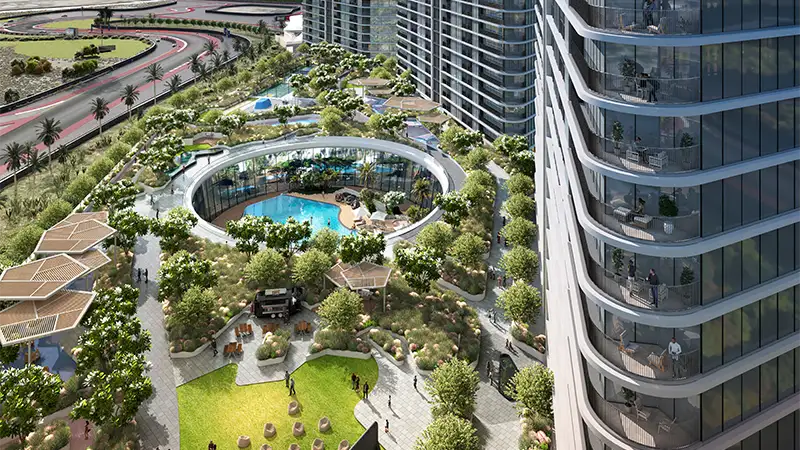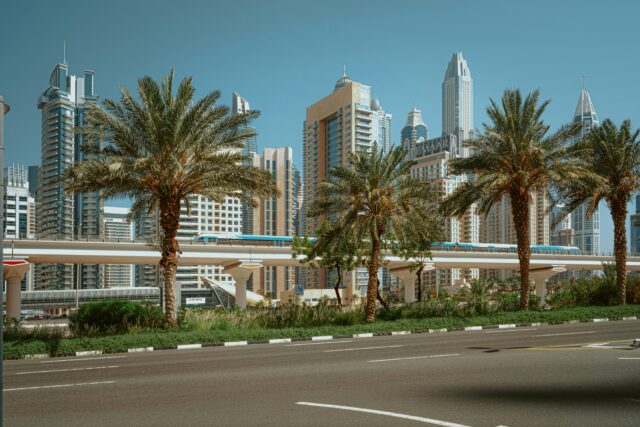
Dubai’s real estate landscape is shifting in 2025. After a months‑long crackdown on illegal room partitions and overcrowded bed spaces, landlords increasingly prefer to rent to families — rather than bachelors — citing safety, hygiene, and compliance with official rules. Here’s an in-depth blog‑style take (about 1,000 words ⭐), complete with emojis to lighten the read.
1. The Illegal Partition Problem: What’s Going On?
Since June 2025, Dubai Municipality, together with the Dubai Land Department (DLD) and Civil Defense, has launched a sweeping enforcement campaign in dense neighbourhoods like Al Rigga, Satwa, Deira, Al Barsha, Al Raffa, and others. Inspectors are targeting unapproved internal walls, bunk‑bed dens, and overcrowded sublets — all declared fire, structural, and health hazards
These illegal splits often convert standard 1–2 BHK units into “co‑living” wall‑to‑wall cubicles. After multiple fire accidents linked to such units, authorities warned landlords and tenants**: partitions must go, or fines and demolitions will follow*
Fines for landlords range up to AED 50,000, plus risk utility cuts, forced evictions, and mandatory demolition of the illegal structures . DLD inspectors can also blacklist buildings, especially if overcrowding persists.
2. Why Landlords Are Now Avoiding Bachelors 🚫
So where do bachelors fit into all of this?
a) Safety & Legal Complexity
Many landlords found after-the-fact that their properties were housing 10–15 people in what was rented legally as a single tenancy agreement. With fines, complaints, and renovation costs (some paid Dh45,000 to clear partitions and mold) — they’re now cautious: why risk renting to singles who might sublet illegally?
b) Reputation of the Building
Reddit threads echo disgruntled residents:
“The building used to be for families only… now the corridors smell, lifts are dirty, and women feel unsafe”
“A 1 BHK was converted into 8 tiny cubicles — no breathing space”
To maintain the reputation—and prevent neighbour complaints—many landlords now screen out tenants who could be seen as risky.
c) Regulations Around “Family” Buildings
Some buildings are now officially designated “family only” by Dubai Municipality or developer rules — meaning renting to unrelated bachelors could breach lease terms or invite fines
Landlords, understandably risk-averse, are at or above the preferred tenant level: married couples—or families—are seen as low‑risk
3. The Tenant Side: Cracking Down Has Displaced Thousands
a) From Partition Flats to the Longer Commute
Many tenants accepted partition flats because legal rent is out of reach. A bedspace might cost Dh 600–Dh 1,200/month — compared to Dh 1,400+ for a legal studio or 1 BHK
Consider Zubair:
“I used to pay Dh1,200 in Dubai… now I pay Dh600 in Sharjah and spend over three hours commuting”
b) No Legal Tenant Rights or Ejari
Many living in partitioned units didn’t get proper Ejari‑registered contracts, meaning no access to basic legal protections or utilities. Inspection sparks a three‑day eviction — with nowhere safe to go
c) No Affordable Alternatives Provided Yet
Residents from communities like Karama, Satwa, and Qusais have called on the government to establish legal, affordable co‑living zones for single workers, with proper infrastructure and rules to prevent overcrowding
4. What Are the Rules: Legal Limits & Renter Obligations
Under UAE Rental Law No. 26 of 2007 (amended 33/2008) and municipal building regulations:
- Partitions: must not be installed without landlord consent and full municipal + civil defense permits
- Subletting: illegal unless authorized in writing by the landlord and within the Ejari contract
- Density limits: generally minimum 5 sqm/person of net floor area; labour housing rules allow as low as 3.7 sqm in camps, but residential dwellings must comply with 5 sqm/person, or face fines
- Occupants: all people living in the unit must be registered on the Ejari contract. Hidden roommates = flagged as illegal sublets
If landlords discover illegal partitions or overcrowding, they must file with the Rental Disputes Centre (RDC) — seeking compensation and eviction of violators.
5. Why Families Are Still “Preferred” Tenants 💼
Families generally pose lower risk for:
- Compliance with lease terms
- Stability and longer stays
- No surprise guest parties or overnight subletting
- Cleaner, calmer use of common areas
- Fewer complaints from neighbours
Real-estate owners now deliberately seek tenants with “family status”. A survey from Colife shows landlords especially prefer young, tidy couples, ideally pet-free and childless — believing these profiles reduce maintenance costs and maximise reliability
6. Market Impact: What’s Changing in 2025 Dubai?
| 📌 Issue | 🏗️ Emerging Trend |
|---|---|
| Illegal Partition Crunch | Buildings audited and retrofit — partitions removed or demolished |
| Bachelor Rentals Crackdown | Evictions increase, especially in family-designated areas |
| Families vs Bachelors | Landlords favour families; rental ads now often specify “families only” |
| Labor Worker Displacement | Thousands pushed to outskirts (Sharjah, Ajman), longer commutes |
| Rent Inflation for Legal Flats | With shared rentals eliminated, studio/MBB dwellers forced to pay premium, often outside Dubai |
| Development Gap | Still no large-scale co-living, affordable bachelor housing initiative underway |
7. What Should Stakeholders Do?
→ Tenants (especially bachelors)
- Always check if the building rents to bachelors—ask agents or visit hotels nearby
- Make sure you sign a registered Ejari contract including all roommates
- Decline partitioned flats, even if cheap — the risk of eviction and no deposit refund is high
- Explore Sharjah, Jebel Ali, or designated labour-camp areas with company housing
→ Landlords & Agents
- Inspect units regularly — remove partitions and demand Ejari compliance
- For multiple-occupant rent, insist on full contract names on Ejari
- Prefer family tenants only if rentals can be monitored and legal permits issued
- Install carbon monoxide/fire alarms, especially after stampedes tied to overcrowding
→ Policy Makers & Developers
- Consider building ** regulated co‑living buildings** with proper ventilation, rules, community spaces
- Extend affordable single-worker zones like older neighborhoods in Qusais or Karama
- Provide subsidized utilities or transit support for low-income tenants who cannot afford rent
8. Voices from the Community…
“Dubai’s rental maze has been designed to favour landlords… tenants feel trapped and over‑burdened.”
— Reddit fallout thread (Mar 2025) highlighting fairness imbalance and hidden fees
A bachelor recounts: “PTp – 10 people crammed into a 1 BR – risk of fires, low hygiene, unsafe in emergencies.”
— Comments from r/dubai about overcrowding in partitioned apartments (2025)
❗ In Summary
- The recent crackdown on illegal partitions is strict and ongoing — both landlords and tenants face serious legal risks if they are found in violation.
- Landlords are now favouring families over bachelors due to compliance, fewer complaints, and better building harmony.
- Tenants displaced by eviction are mostly migrant workers or lower-income professionals, left to seek expensive or remote options.
- There is an urgent need for safe, legal, affordable housing solutions for single or low-income workers, coupled with fair enforcement and transparent rules.
For prospective renters: If you’re single—or a group of bachelors—be extra cautious. Only rent units that are Ejari’d, clearly drafted, and avoid any flat with bedroom dividers or cubicles.
And for landlords: Strongly consider getting proper permits, listing occupants, inspecting regularly, and avoiding risky subletting situations—even if it costs you in short‑term rent.
This is Dubai’s housing reality in 2025—where safety, structure, and legal clarity are taking precedence, and families are increasingly seen as the ‘safe bet’ tenants. The potential winners? Developers and policymakers who introduce legal co‑living solutions before more people get left in limbo.





Leave a Reply